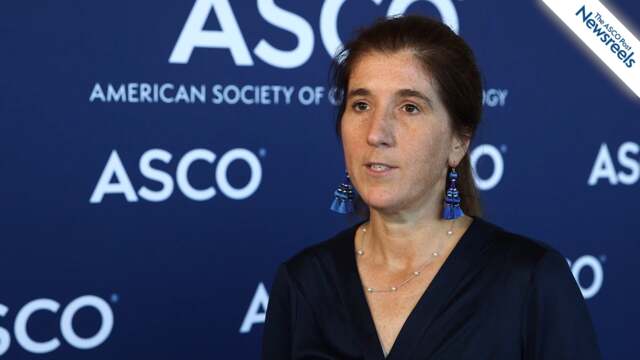Jed A. Katzel, MD, on Head and Neck Cancer: Findings on Treatment of Female Patients
2018 ASCO Annual Meeting
Jed A. Katzel, MD, of Kaiser Permanente, discusses his team’s findings on the disparities in head and neck cancer treatment for women and the possible missed opportunities to take a more aggressive and beneficial approach (Abstract LBA6002).
Helena Margaret Earl, MBBS, PhD, of the University of Cambridge, discusses phase III study findings on 6 vs 12 months of adjuvant trastuzumab in patients with HER2-positive early breast cancer (Abstract 506).
Kathleen N. Moore, MD, of the University of Oklahoma Health Sciences Center, discusses phase II study findings on niraparib in patients with relapsed ovarian cancer who have received three or more prior chemotherapy regimens (Abstract 5514).
Rebecca A. Dent, MD, of the National Cancer Centre Singapore, discusses phase II study findings on first-line ipatasertib plus paclitaxel for locally advanced/metastatic triple-negative breast cancer (Abstract 1008).
Danh Pham, MD, of the James Graham Brown Cancer Center, University of Louisville, discusses his findings using a registry on the low rates of screening with low-dose computed tomography, despite its potential to prevent thousands of lung cancer deaths each year (Abstract 6504).
Toni K. Choueiri, MD, of Dana-Farber Cancer Institute, and Laurence Albiges, MD, PhD, of Gustave Roussy, discuss the implications of this study’s potentially practice-changing finding that nephrectomy is no longer the standard of care for patients with metastatic renal cell carcinoma (Abstract LBA3).





